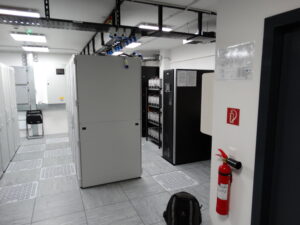In today’s competitive business environment, there should be adequate arrangements of data storage and safety as companies rely on these huge amounts of data for various purposes. And the most commonly available option is the use of cloud-based technology that emerges out as a cost-effective alternative to highly expensive data centre construction. But it is also true that both of them have their own advantages and disadvantages.
Fundamentally, a cloud data service refers to a remote version of a data centre – situated at a place away from your firm’s primary building – that allows you access your data using the internet. The cloud provider looks after the ongoing maintenance and updates, often possessing multiple data centres in various geographic locations to protect your data during outages and other catastrophes.
On the other hand, a data centre usually refers to server hardware on your building to store and access data using the local network. It is generally maintained by your IT department.

- Customizable vs. Scalable
Data centre design and build is appropriate for businesses that need a specialised system that lends them complete control over their data as well as hardware. Since the company is using this hardware infrastructure, a data centre is more suitable for a business that has to manage several types of applications and multipart workloads.
A data centre, however, is known to have inadequate capacity. You would need to bring in more equipment and the updated technology if your business comes across the need to expand the storage and workload of the data centre.
Unlikely, a cloud data system has unlimited capacity, based on your vendor’s services. The downside is that you don’t get so much control over the remotely placed hardware, since the cloud vendor keeps and manages the data centre system. In addition, except you opt to have a private cloud within the vendor’s network, your business will be sharing hardware resources with other cloud users.
- Security
In case of a cloud vendor, your business will be trusting its data to a third party. It’s all up to the vendor to ensure it has the robust security certifications. If your cloud resides on multiple data centres in different locations, each location will need to have the perfect security actions.
Your cloud data can be accessed by almost anyone with required credentials from anywhere using an internet connection. This is easy to use, but it also exposes it to a wide range of access points, all of which need to be safeguarded to ensure that data transmitted through them is protected.
A data centre is physically linked to your company’s local network. This makes it easier to safeguard that only individuals with company-certified credentials and devices can get access of the stored apps and details. In short, you are responsible for your own data security.



